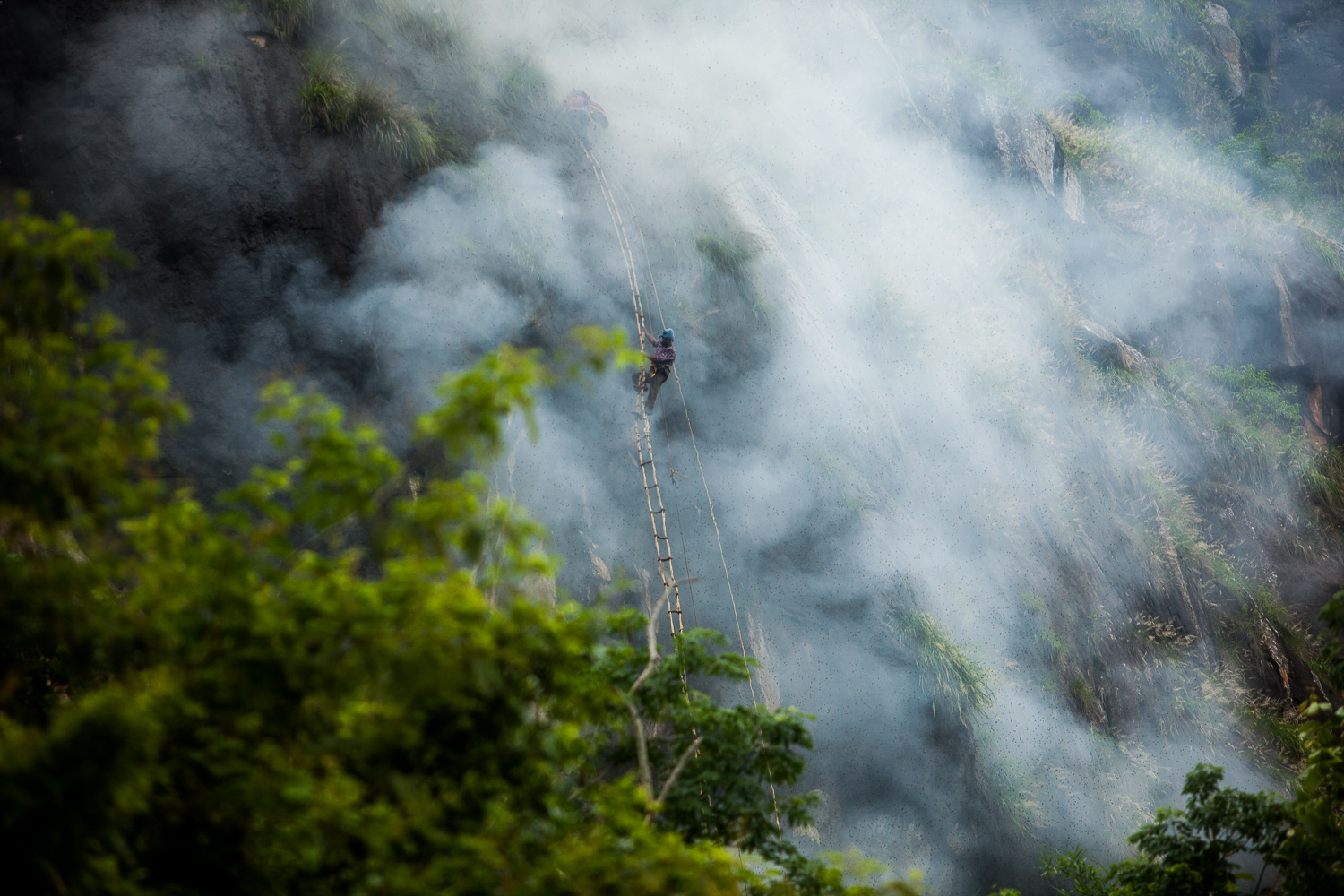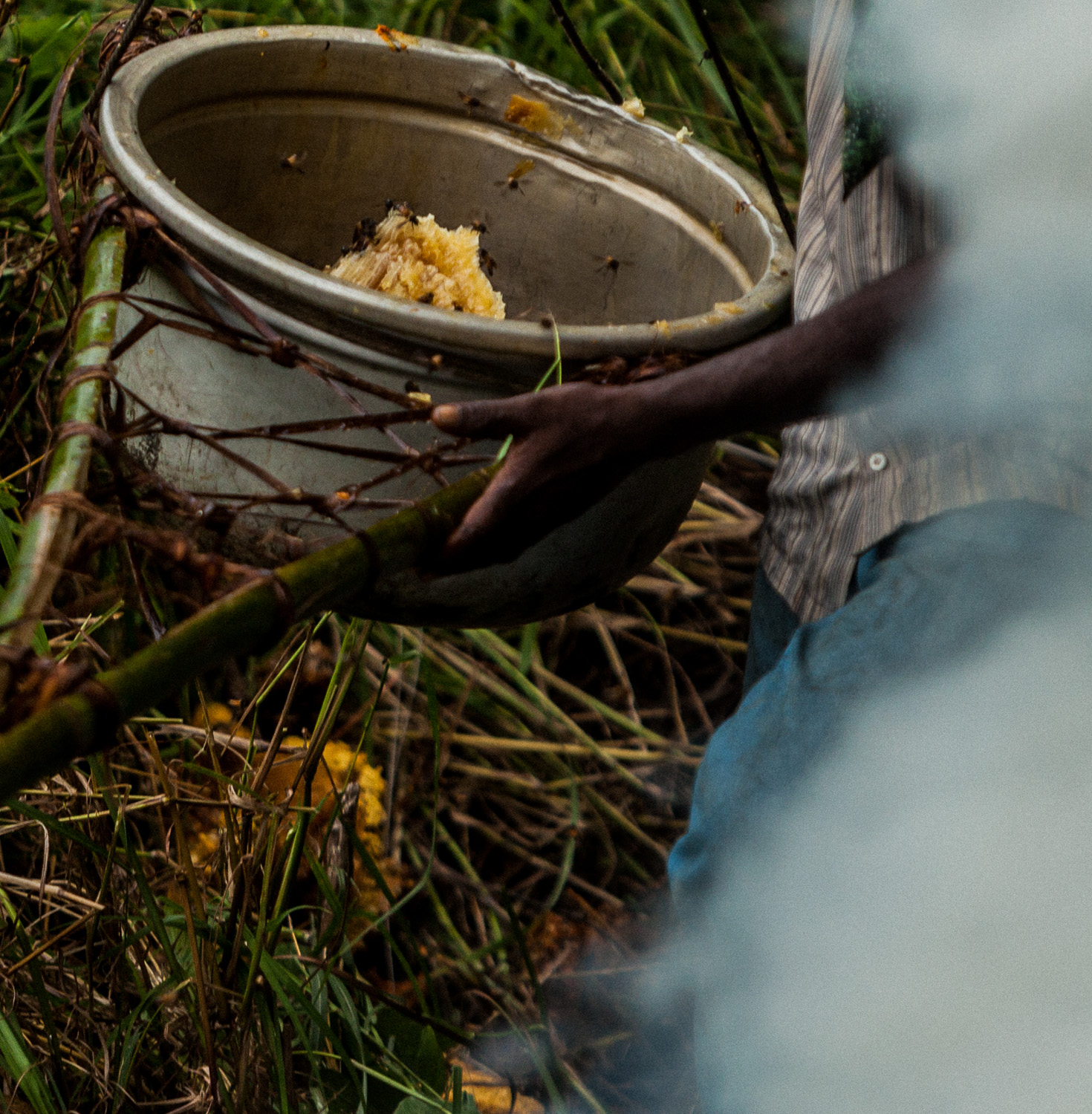We are where we are due to the support of our volunteers and donors. We seek your continued support in taking our initiatives forward.
Aadhimalai Pazhangudiyinar Producer Company Ltd.
Keystone had conducted a state-wide survey on apiculture in Tamil Nadu which brought the core team members to the Nilgiris. Several indigenous communities in the Nilgiris practice honey harvesting and subsistence agriculture. Keystone set up an office and its first retail outlet, The Green Shop, a marketplace for products made by the tribal communities, in Kotagiri. Honey and beeswax were procured from the honey harvesters of the Nilgiris at a fair price, processed at the Keystone office and the products were retailed at The Green Shop. In 2004, a project to do value addition on Non-Timber Forest Produce was initiated by Keystone and Aadhimalai took shape



Traditional honey collectors retrieving Rockbee honey (Apis Dorsata) from the cliffs of Vellaracombai in eastern nilgiris. Images: Ramya Reddy
Semmanarai village was identified as the first field area to set up a resource centre to do value addition work at the village level. The village headman contributed land for setting up a centre. Beeswax-related work was started and training was given to over 20 villagers.

Millet farms on ancient land, Bangalapadigai. Image: Ramya Reddy
Semmanarai is a picturesque land that is home to the honey harvesters of the Kurumba and the Irula tribes. The production centre was started in 2003-04 at Bangalapadigai, about 34 km distance on the eastern direction of Kotagiri, situated at a much lower elevation, at 1000 msl.
The Irula community practises excellent traditional millet farming in the region.



Indigenous women working with Non-Timber Forest Produce to make soaps, gooseberry products and more, at Keystone resource centres across settlements. Images: Keystone Foundation
The adjacent forests of Semmanarai are a rich non-timber forest produce bowl. Large amounts of shikkakai, gooseberries, soapberries, Phoenix leaves, and honey used to be collected in this region. Among the agricultural produce, silk cotton, coffee, and pepper are the main produces. It has also developed as a centre for ginning and processing silk cotton today.
In 2008, a village named Kurumbadi near Coonoor gave land and building for setting up a processing centre there. Due to several administrative barriers, the operations had to be shifted to a nearby village called Pudukad. The women in the centre were trained to make pickles, soaps and lip balms.


